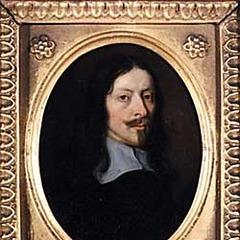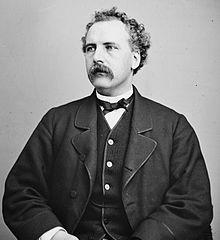Alexander Pope Quotes - Page 19

Alexander Pope (1835). “The Works of Alexander Pope: With a Memoir of the Author, Notes, and Critical Notes on Each Poem”, p.21
'An Essay on Man' Epistle 1 (1733) l. 13
Alexander Pope, John Wilson Croker (1871). “The Works: Including Several Hundred Unpublished Letters, and Other New Materials”, p.397
Alexander Pope (2013). “Delphi Complete Works of Alexander Pope (Illustrated)”, p.135, Delphi Classics
Ah! what avails it me the flocks to keep, Who lost my heart while I preserv'd my sheep.
Alexander Pope (1873). “The Poetical Works of Alexander Pope Edited with Notes and Introductory Memoir by Adolphus William Ward”, p.21
And each blasphemer quite escape the rod, Because the insult's not on man, but God?
Alexander Pope (1872). “Pope. Satires and Epistles, ed. by M. Pattison”, p.99
To the Elysian shades dismiss my soul, where no carnation fades.
Alexander Pope (1751). “The works of Alexander Pope. With his last corrections, additions, and improvements. Publ. by mr. Warburton. With occasional notes”, p.204
Alexander Pope, Alexander Dyce (1831). “Poetical Works”, p.273
Alexander Pope (1873). “The Poetical Works of Alexander Pope Edited with Notes and Introductory Memoir by Adolphus William Ward”, p.202
The mouse that always trusts to one poor hole Can never be a mouse of any soul.
Alexander Pope, George Croly (1854). “The Poetical Works of Alexander Pope; with a Memoir of the Author, Notes, and Critical Notices on Each Poem. By the Rev. George Croly ... New Edition. [With a Portrait.]”, p.367
Death, only death, can break the lasting chain; And here, ev'n then, shall my cold dust remain
Alexander Pope (1819). “The Poetical Works of Alexander Pope: In Three Volumes Complete : with His Last Corrections, Additions, and Improvements, Together with All His Notes, as They Were Delivered to the Editor a Little Before His Death : Together with the Commentary and Notes of Mr. Warburton”, p.212
O Love! for Sylvia let me gain the prize, And make my tongue victorious as her eyes.
Alexander Pope, Alexander Dyce (1831). “The poetical works of Alexander Pope”, p.23
Alexander Pope (1849). “Letters of Alexander Pope Works and Arranged Expresly for the Use Young People”, p.70
Some place the bliss in action, some in ease, Those call it pleasure, and contentment these.
Alexander Pope (1752). “The Works of Alexander Pope, Esq: Moral essays”, p.124
Alexander Pope, Samuel Johnson (1839). “The Poetical Works of Alexander Pope: In 1 volume”, p.128
Alexander Pope, William Roscoe (1847). “The works of Alexander Pope, esq., with notes and illustrations, by himself and others. To which are added, a new life of the author, an Estimate of his poetical character and writings, and occasional remarks by William Roscoe, esq”, p.331
Alexander Pope, Alexander Chalmers (1807). “A Supplementary Volume to the Works of Alexander Pope, Esq: Containing Pieces of Poetry, Not Inserted in Warburton's and Warton's Editions : and a Collection of Letters, Now First Published”, p.131
Alexander Pope (1804). “The Leaser. Being a Selection from the Poetical Works of Alexander Pope, with an Account of His Life and Writings”, p.4
Alexander Pope, George Croly (1854). “The Poetical Works of Alexander Pope; with a Memoir of the Author, Notes, and Critical Notices on Each Poem. By the Rev. George Croly ... New Edition. [With a Portrait.]”, p.263
Alexander Pope (1853). “The poetical works of Alexander Pope”
Alexander Pope (1804). “A Select Collection of Poems: Viz. An Essay on Man; An Essay on Criticism; The Messiah; &c. &c. ... To which are Prefixed, An Account of the Life of the Author”, p.105
Love seldom haunts the breast where learning lies, And Venus sets ere Mercury can rise.
Alexander Pope, John Wilson Croker, Whitwell Elwin, William John Courthope (1871). “The Works of Alexander Pope: New Ed. Including Several Hundred Unpublished Letters, and Other New Materials, Collected in Part by John Wilson Croker. With Introd. and Notes by Whitwell Elwin”, p.180
Alexander Pope (1796). “The Beauties of Pope, Or, Useful and Entertaining Passages: Selected from the Works of that Admired Author : as Well as from His Translation of Homer's Iliad and Odyssey, &c”, p.83
Ye gods, annihilate but space and time, And make two lovers happy.
'Martinus Scriblerus...or The Art of Sinking in Poetry' ch. 11 (Miscellanies, 1727)
"The Poetical Works of Alexander Pope: To which is Prefixed a Life of the Author".






